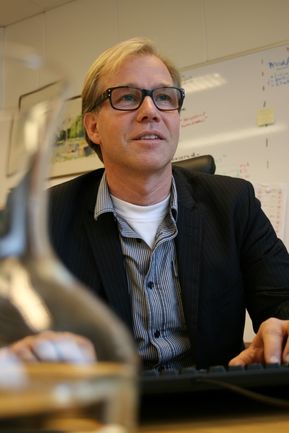iDSI caught up with Patric Landin, regional advisor for Sida’s (Swedish International Development Cooperation Agency) Sexual and Reproductive Health and Rights team, ahead of the Global Symposium on Health Systems Research (HSR) in Liverpool next week.
A HSR 2018 satellite session, which will focus on health financing towards Universal Health Coverage (UHC), has received funding from Sida, working on behalf of the Swedish Parliament and Government. The full day session is co-hosted by the Clinton Health Access Initiative, Sida and iDSI.
- The satellite session will feature policy makers from Sub Saharan Africa sharing their experiences developing and implementing policies and reforms to make progress towards UHC. What are you hoping will come out of this session?
Low and middle-income countries are facing a very similar set of health financing challenges and implementing related reforms. There are many success stories and practical experiences to be shared from the people currently implementing reforms on the ground.
We are hoping that this session will contribute to strengthening the knowledge exchange between the decisions-makers from Low and middle-income countries in how to best address common challenges and learn from each other.
We will focus on how priority setting, defining basic health services, resource allocation and strategic purchasing can be applied to make progress towards UHC, including essential sexual and reproductive health and rights (SRHR): What do we pay for, which services and for whom, and how do we pay it? How do we make the difficult choice of prioritising certain services above others and how do we ensure that services are delivered in a sustainable and equitable way? How do we ensure key services such as SRHR are included and specific needs of for example adolescents and young women are not left behind.
- Can you tell us more about the facilitators and panellists that will be part of the satellite session?
We are bringing together leading researchers, government officials and policy representatives from Asia and Sub-Saharan Africa that have on the ground experience in developing and implementing policies. This includes government representatives from countries Sida is supporting, with technical assistance from the Clinton Health Access Initiative (CHAI) in health financing reforms (Ethiopia, Rwanda, Malawi, South Africa, Eswatini, Zambia).
We believe this mix of people will make for interesting discussions. We will also open up the floor after each sub-session for an audience of international attendees.
- Investment in sexual and reproductive health and rights in Sub-Saharan Africa is major part of Swedish development cooperation. Can you tell us some more about the work of the regional team based in Lusaka and Sida’s approach?
Sweden has a feminist foreign policy and SRHR is a top priority for Swedish Development Assistance. Approximately 60 per cent of our official development assistance for health is directed towards SRHR. The regional team works on SRHR to advance the continental and regional agenda for sexual and reproductive health and rights through supporting legal and policy reform, expanding access to essential SRH-services, changing social norms around gender and sexuality, as well as advancing accountability for regional commitments. The team has partnerships with regional economic communities such as the Southern African Development Community (SADC) and East African Community, parliamentary fora such as SADC Parliamentary Forum, the UN including the United Nations Population Fund and WHO, research institutes and civil society networks. Our work with CHAI on health financing is an important part in advancing SRHR in sub-Saharan Africa. Access to SRHR services, under a model for UHC, requires a transparent and inclusive discussion on how resources are prioritised and what services to include in basic packages based on the best available evidence. For us, UHC is based on the principle that basic health services should be provided to all. If these principles are adhered to, SRHR services become naturally prioritised.
Sida’s commitment to SRHR is likely to remain for the foreseeable future. Therefore we believe in establishing long-term partnerships with organisations that can contribute to normative change in the region.
- What do you enjoy most about your role?
My position gives me a good overview of regional SRHR issues and a chance to see how different structures and processes are related. Thanks to that overview, I have a unique opportunity to connect partners and key actors to initiative and networks where synergies can be created. The HSR 2018 satellite sessionis a good example of connecting people to achieve more. Personally, I am very happy to be part of the promotion of SRHR-interventions as a natural and integral part of basic health care packages and UHC since these services respond to common and often recurring needs in the population and therefore must be included in public commitments.
- If you weren’t in the global health, what would you be doing instead?
Living in Sweden I would probably work for a health provider with Lean production and quality assurance or in a purchaser–provider organisation defining volumes, cost levels and quality standard of health services in assignments to health providers, both public and private. Irrespective of which job, I would make sure I was involved in organisational and operational development since it really matters “how” services are provided and what results you get for your money.
Conference delegates can attend ‘Health financing towards UHC’ from in conference room 13 from 8.30am on Monday 8 October as part of HSR 2018 of which the overaching theme is ‘advancing health systems for all in the Sustainable Development Goals era’. Find out more at www.healthsystemsresearch.org/hsr2018
